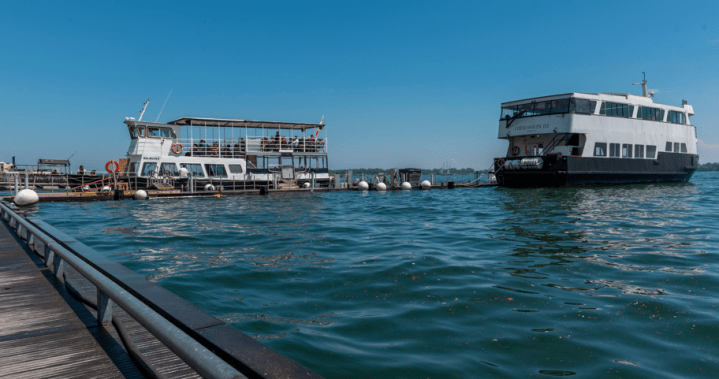As the weather starts to heat up across the province, one Ontario boating company is urging the public to be cautious when booking charters for the summer.
The Great Lakes Boaters Association (GLBA), which says it represents more than 300 boaters and 40 companies, put out a petition earlier this month asking Toronto to loosen its safety regulations and increase access to docking infrastructure across the city.
However, some licensed boating companies are concerned about the safety of passengers, alleging the association supports unlicensed yacht charters that put the public at risk.
Mani Saba, founder of Toronto Yachts and the Safety Awareness Boating Alliance, told Global News many members of the GLBA are operating without required certifications. Furthermore, they’re crowding out fully compliant operators who follow Transport Canada’s commercial safety standards, he said.
Saba said his company has documented dozens of operators accused of skirting the Canada Shipping Act and Transport Canada’s rules and regulations.
He alleges that some illegal charters do not have enough lifejackets or go over capacity on the number of allowed passengers on board. He says in times of crisis or emergency, these rules can be the “silver-lining between life and death.”
Get daily National news
Get the day’s top news, political, economic, and current affairs headlines, delivered to your inbox once a day.
“These deceptive practices not only undermine the legitimate licensed businesses like Toronto Yachts, but also endanger public safety by circumventing critical regulations designed to protect passengers and crews,” Saba said.
Michael Motala, a lawyer representing Toronto Yachts, said unregulated boating on Ontario waters has serious consequences.
“Every single summer, every single season, people die in the lakes or the port of Toronto. There are reports where people die from unlicensed boat operators,” Motala said.
Saba also added that some charter customers may not know what kind of boat they’re getting on and the risks can be severe.
“A lot of charter companies do not have proper safety training so when passengers are on board and something happens, they don’t know what to do,” said Saba.
Motala added: “Imagine being the parent of someone innocently going out on the water, only to discover six to 12 hours later that because of an incident, your daughter or son is dead.”
Transport Canada confirmed in a statement to Global News that it “does not register or formally recognize marine associations such as the Great Lakes Boaters Association.” Global News contacted the GLBA for comment, but did not receive a response by deadline.
The agency also said it has taken enforcement action against non-compliant charter operations.
“During the 2024 summer period, Transport Canada undertook inspection activities on alleged passenger operations, some of which resulted in enforcement actions, including vessel detentions,” the department said.
Toronto police also told Global News in a statement that they are aware of “growing public concern regarding the safety of Toronto’s waterways” and confirmed that “there have been several marine-related deaths that have led to criminal charges, as well as charges under the Canada Shipping Act.”
According to the Ontario Provincial Police, falling overboard and vessel capsizing remain the leading causes of boating deaths in Ontario. Over the last five years, 131 people have died in boating incidents on OPP-patrolled waterways, including 56 paddlers.
Authorities added they are continuing to work with enforcement partners to ensure compliance and public safety as the summer approaches.
“The biggest challenge is there’s no distinguishable element out there for the member of public to identify who is a licensed and safe operator and who’s not,” Saba said.
© 2025 Global News, a division of Corus Entertainment Inc.

